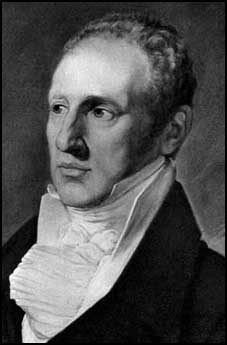The Times
The Times is a British daily national newspaper based in London. It began in 1785 under the title The Daily Universal Register, adopting its current name on 1 January 1788. The Times and its sister paper The Sunday Times (founded in 1821) are published by Times Newspapers, since 1981 a subsidiary of News UK, itself a wholly-owned subsidiary of News Corp. The Times is the originator of the widely used Times Roman font, originally developed by Stanley Morison of The Times in collaboration with the Monotype Corporation.
History[edit | edit source]
The Times was founded by John Walter on 1 January 1785 as The Daily Universal Register, with the first issue promising to insert nothing "but what we can give the most authentic assurance is genuine." Its name was changed to The Times on 1 January 1788, reflecting its growing seriousness. The newspaper was in the forefront of reporting and innovation from the start; it was the first newspaper to send war correspondents to cover conflicts, such as the Crimean War.
In the 19th century, The Times was known for its influential leaders (editorials) and in-depth reporting. It played a significant role in advocating for reform and reporting on key events of the time, including the Great Reform Act of 1832 and the Crimean War in the 1850s. Under the editorship of John Thadeus Delane (1841-1877), the paper's influence and readership expanded significantly.
Ownership[edit | edit source]
In 1981, The Times and The Sunday Times were bought by Rupert Murdoch's News International, now known as News UK. This acquisition was controversial and led to fears about editorial independence and media plurality. However, Murdoch has maintained that the newspapers operate independently within his media empire.
Modern Era[edit | edit source]
Today, The Times is known for its comprehensive coverage of national and international news, including politics, business, culture, and sports. It has embraced digital technology with a strong online presence, including a paywalled website and mobile applications, while continuing to publish its print edition. The Times has a reputation for quality journalism, winning numerous awards for its reporting, commentary, and design.
Format and Features[edit | edit source]
The newspaper is divided into sections, including news, opinion, business, arts, and sports. It is known for its opinion columns, editorials, and letters to the editor, providing a platform for debate on national and international issues. The Times also features a crossword puzzle, which has a dedicated following.
Controversies[edit | edit source]
Throughout its history, The Times has been involved in various controversies, including accusations of bias, particularly in its editorial stance on political issues. It has also faced criticism for its reporting on certain topics and individuals. However, it remains one of the most respected newspapers in the UK and globally.
Legacy[edit | edit source]
The Times has had a significant impact on journalism and public discourse. Its archives serve as a valuable historical resource, offering insights into the events and debates that have shaped the modern world. The newspaper's commitment to reporting and editorial independence continues to influence the media landscape.
Search WikiMD
Ad.Tired of being Overweight? Try W8MD's physician weight loss program.
Semaglutide (Ozempic / Wegovy and Tirzepatide (Mounjaro / Zepbound) available.
Advertise on WikiMD
|
WikiMD's Wellness Encyclopedia |
| Let Food Be Thy Medicine Medicine Thy Food - Hippocrates |
Translate this page: - East Asian
中文,
日本,
한국어,
South Asian
हिन्दी,
தமிழ்,
తెలుగు,
Urdu,
ಕನ್ನಡ,
Southeast Asian
Indonesian,
Vietnamese,
Thai,
မြန်မာဘာသာ,
বাংলা
European
español,
Deutsch,
français,
Greek,
português do Brasil,
polski,
română,
русский,
Nederlands,
norsk,
svenska,
suomi,
Italian
Middle Eastern & African
عربى,
Turkish,
Persian,
Hebrew,
Afrikaans,
isiZulu,
Kiswahili,
Other
Bulgarian,
Hungarian,
Czech,
Swedish,
മലയാളം,
मराठी,
ਪੰਜਾਬੀ,
ગુજરાતી,
Portuguese,
Ukrainian
Medical Disclaimer: WikiMD is not a substitute for professional medical advice. The information on WikiMD is provided as an information resource only, may be incorrect, outdated or misleading, and is not to be used or relied on for any diagnostic or treatment purposes. Please consult your health care provider before making any healthcare decisions or for guidance about a specific medical condition. WikiMD expressly disclaims responsibility, and shall have no liability, for any damages, loss, injury, or liability whatsoever suffered as a result of your reliance on the information contained in this site. By visiting this site you agree to the foregoing terms and conditions, which may from time to time be changed or supplemented by WikiMD. If you do not agree to the foregoing terms and conditions, you should not enter or use this site. See full disclaimer.
Credits:Most images are courtesy of Wikimedia commons, and templates, categories Wikipedia, licensed under CC BY SA or similar.
Contributors: Prab R. Tumpati, MD





